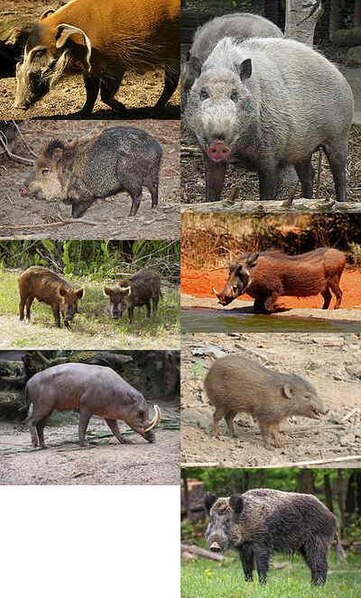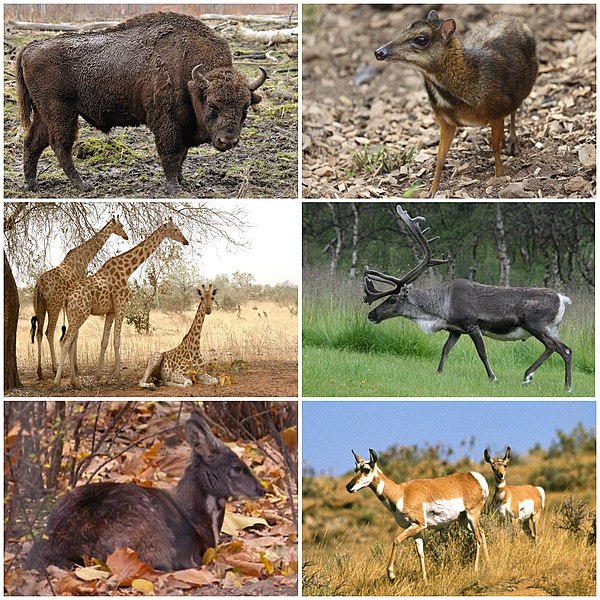Suina is a suborder of omnivorous, non-ruminant artiodactyl mammals that includes the domestic pig and peccaries. A member of this clade is known as a suine. Suina includes the family Suidae, termed suids, known in English as pigs or swine, as well as the family Tayassuidae, termed tayassuids or peccaries. Suines are largely native to Africa, South America, and Southeast Asia, with the exception of the wild boar, which is additionally native to Europe and Asia and introduced to North America and Australasia, including widespread use in farming of the domestic pig subspecies. Suines range in size from the 55 cm (22 in) long pygmy hog to the 210 cm (83 in) long giant forest hog, and are primarily found in forest, shrubland, and grassland biomes, though some can be found in deserts, wetlands, or coastal regions. Most species do not have population estimates, though approximately two billion domestic pigs are used in farming, while several species are considered endangered or critically endangered with populations as low as 100. One species, Heude's pig, is considered by the International Union for Conservation of Nature to have gone extinct in the 20th century.

Suina
Ruminants are herbivorous grazing or browsing artiodactyls belonging to the suborder Ruminantia that are able to acquire nutrients from plant-based food by fermenting it in a specialized stomach prior to digestion, principally through microbial actions. The process, which takes place in the front part of the digestive system and therefore is called foregut fermentation, typically requires the fermented ingesta to be regurgitated and chewed again. The process of rechewing the cud to further break down plant matter and stimulate digestion is called rumination. The word "ruminant" comes from the Latin ruminare, which means "to chew over again".
Ruminant
Food digestion in the simple stomach of nonruminant animals versus ruminants



